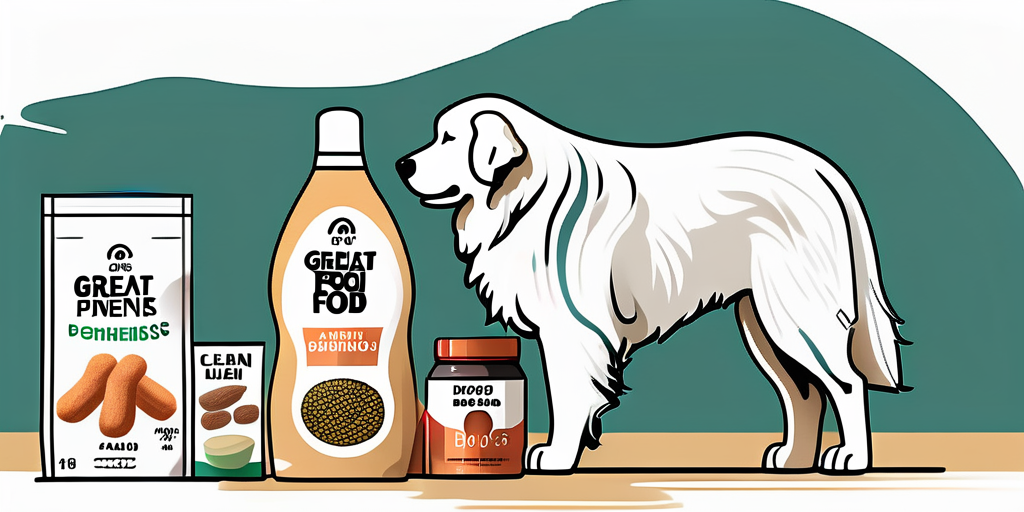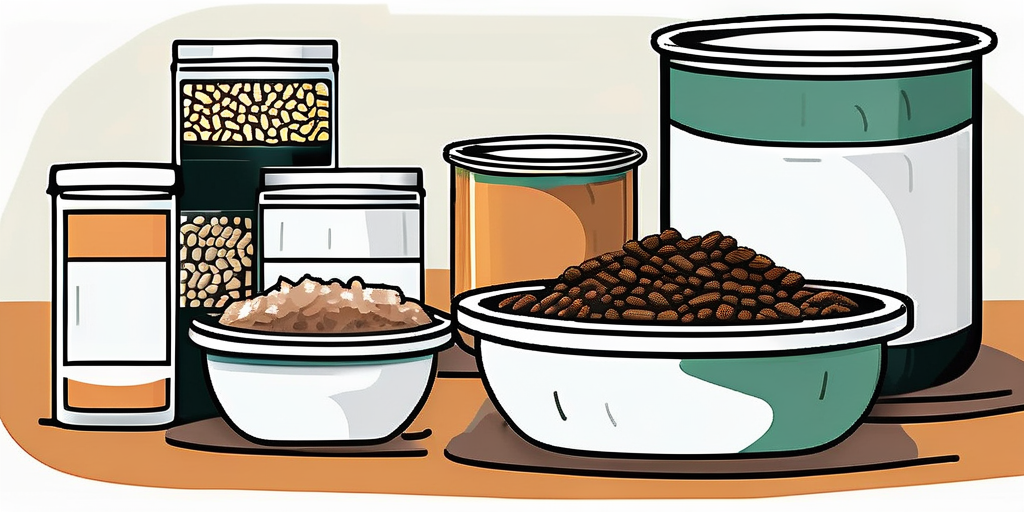The Great Pyrenees, also known as the Pyrenean Mountain Dog, is a large breed that requires a specific diet to maintain its health and vitality. Shopping for the best dog food for this breed is not a task to be taken lightly. This guide will provide detailed information on how to choose the best dog food for a Great Pyrenees, taking into account the breed’s unique dietary needs, common health issues, and other factors.
Understanding the Nutritional Needs of a Great Pyrenees
The Great Pyrenees is a large breed dog that typically weighs between 85 and 100 pounds. Due to their size, these dogs have specific nutritional needs that must be met to ensure their overall health and well-being. They require a balanced diet that includes a proper mix of proteins, carbohydrates, fats, vitamins, and minerals.

Protein is particularly important for a Great Pyrenees. It helps to build and maintain their large muscle mass. Look for dog foods that list a high-quality source of protein, such as chicken, beef, or fish, as the first ingredient. Avoid dog foods that list a grain or a by-product as the first ingredient.
Carbohydrates and Fats
Carbohydrates provide a Great Pyrenees with the energy they need to stay active and playful. However, not all carbohydrates are created equal. Look for dog foods that contain complex carbohydrates, such as sweet potatoes or brown rice, which provide sustained energy and are easy to digest.
Fats are also an essential part of a Great Pyrenees’s diet. They provide energy, help absorb vitamins, and keep the dog’s skin and coat healthy. Look for dog foods that contain healthy fats, such as omega-3 and omega-6 fatty acids.
Vitamins and Minerals
Vitamins and minerals are crucial for a Great Pyrenees’s overall health. They support various bodily functions, including bone health, immune function, and metabolism. Look for dog foods that contain a variety of vitamins and minerals, such as vitamin A, vitamin E, calcium, and phosphorus.
It’s also worth noting that Great Pyrenees can be prone to certain health issues, such as hip dysplasia and bloating. A diet that’s rich in vitamins and minerals can help to prevent these issues.
Choosing the Right Type of Dog Food
There are several types of dog food available on the market, including dry kibble, wet food, and raw food. Each type has its own advantages and disadvantages, and the best choice depends on your dog’s specific needs and preferences.

Dry kibble is the most popular type of dog food. It’s convenient, easy to store, and generally more affordable than other types of dog food. It also helps to keep a dog’s teeth clean. However, it’s important to choose a high-quality kibble that’s free from fillers and artificial ingredients.
Wet Food
Wet food is a good option for dogs that have difficulty chewing or swallowing. It’s also more palatable than dry kibble, which can be a benefit for picky eaters. However, wet food is more expensive than kibble and doesn’t provide the same dental benefits.
Raw Food
Raw food is a more natural option that can provide a range of health benefits, including improved digestion, healthier skin and coat, and reduced allergy symptoms. However, raw food is the most expensive option and requires careful handling to prevent bacterial contamination.
How to Shop for the Best Dog Food for a Great Pyrenees
Now that you understand the nutritional needs of a Great Pyrenees and the different types of dog food, you’re ready to start shopping. Here are some steps to help you choose the best dog food for your Great Pyrenees:
- Consider your dog’s age, size, and activity level. Puppies, adults, and senior dogs have different nutritional needs. Similarly, active dogs require more calories than less active dogs. Choose a dog food that’s formulated for your dog’s specific needs.
- Check the ingredient list. Look for a dog food that lists a high-quality source of protein as the first ingredient. Avoid dog foods that contain artificial colors, flavors, or preservatives.
- Consider the type of dog food. Dry kibble, wet food, and raw food each have their own advantages and disadvantages. Choose the type that best suits your dog’s needs and preferences.
- Research the brand. Not all dog food brands are created equal. Look for a brand that has a good reputation for quality and safety.
- Consult your vet. Your vet can provide personalized advice based on your dog’s health history and dietary needs.
Conclusion
Choosing the best dog food for a Great Pyrenees requires careful consideration of the dog’s nutritional needs, the type of dog food, and the quality of the brand. By taking the time to research and choose the right dog food, you can help ensure that your Great Pyrenees stays healthy and happy for many years to come.
Join the BreedRead Community
Now that you’re equipped with the knowledge to choose the best dog food for your Great Pyrenees, take the next step in ensuring your gentle giant’s well-being with BreedRead.com. Our platform is dedicated to helping you understand and care for your dog’s unique needs. By subscribing to our free newsletter, you’ll gain access to a wealth of information tailored to your Great Pyrenees, from nutritional advice to health care strategies. Don’t miss out on expert insights that can enhance your dog’s health and happiness. Subscribe today and join a community passionate about providing the best for their dogs.

